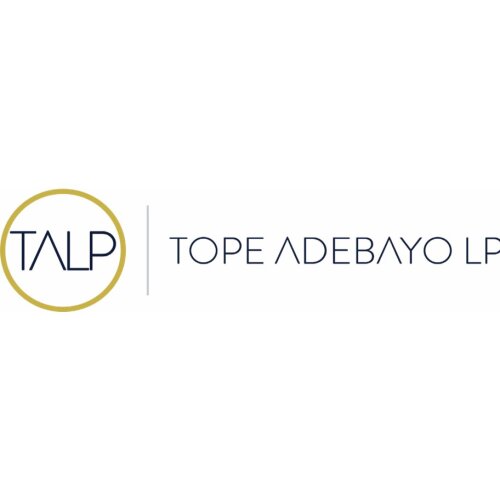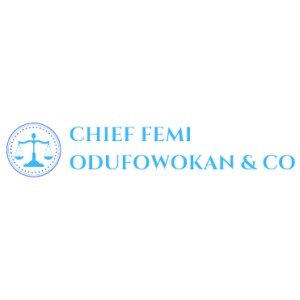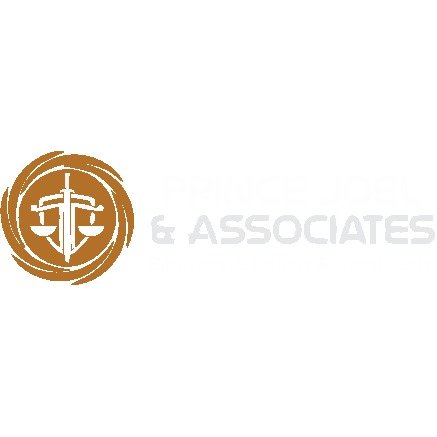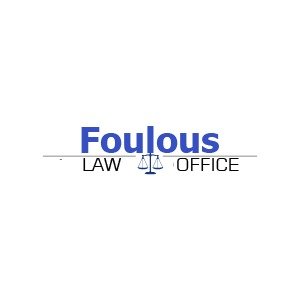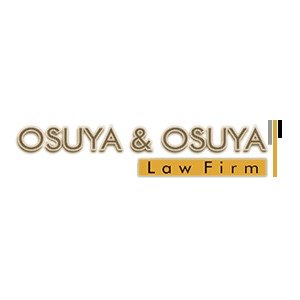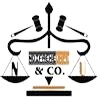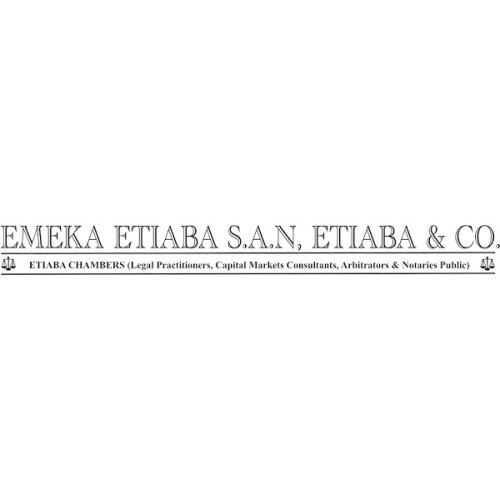Best Insurance Fraud Lawyers in Nigeria
Share your needs with us, get contacted by law firms.
Free. Takes 2 min.
Or refine your search by selecting a city:
List of the best lawyers in Nigeria
Legal guides written by Adeola Oyinlade & Co:
- Procedure and Requirements for Work Permit and Visas in Nigeria
- The Step-By-Step Procedure of How to Apply for Microfinance Bank License Online in Nigeria
- How to Ensure the Smooth Recognition and Enforcement of Foreign Judgments in Nigeria
About Insurance Fraud Law in Nigeria
Insurance fraud in Nigeria is a pressing issue that involves the deliberate deception of an insurance company or insured party for unfair or illegal financial gain. It covers various actions including falsifying claims, exaggerating damages, or fabricating incidents to unjustly benefit from insurance policies. Nigerian law strictly prohibits such fraudulent activities through various acts and regulations aimed at maintaining the integrity of the insurance system and protecting entities from financial loss due to dishonest claims.
Why You May Need a Lawyer
Individuals or businesses may require legal assistance in insurance fraud scenarios for several reasons. If you are accused of insurance fraud, a lawyer can provide crucial advice and defense strategies. Conversely, if you suspect that someone is committing fraud against you or your company, a lawyer can guide you on how to take appropriate legal actions. Lawyers also aid in navigating fraud investigations and assist in recovering any losses due to fraudulent claims.
Local Laws Overview
Nigerian insurance fraud laws are primarily governed by the Insurance Act, which outlines the legal framework for the operations of insurance companies and the handling of claims. Additionally, the Economic and Financial Crimes Commission (EFCC) has jurisdiction over financial crimes, including insurance fraud. Fraud offenses are severely punished under the law, which provides for imprisonment, fines, and restitution. The Insurance Act emphasizes the need for transparency and honesty in all dealings with insurance companies.
Frequently Asked Questions
1. What constitutes insurance fraud in Nigeria?
Insurance fraud includes any act intended to deceive an insurance provider for a claim or benefit that one is not entitled to. This may involve falsifying documents, inflating claims, or staging accidents.
2. What are the penalties for committing insurance fraud in Nigeria?
Penalties can range from hefty fines to lengthy prison sentences, depending on the severity of the fraud and the sums involved. Convicted individuals may also be required to pay restitution.
3. How can I report suspected insurance fraud?
Suspected insurance fraud can be reported to the National Insurance Commission (NAICOM) or the Economic and Financial Crimes Commission (EFCC). It's advisable to provide as much evidence as possible to support your claim.
4. What role does the EFCC play in insurance fraud cases?
The EFCC is responsible for investigating and prosecuting economic and financial crimes, including insurance fraud. They aim to discourage fraud through enforcement of relevant laws.
5. Is exaggerating a claim considered insurance fraud?
Yes, exaggerating claims is a form of insurance fraud. It involves inflating the extent of a loss or damage more than what actually occurred in order to receive higher compensation.
6. Can a lawyer help in negotiating with an insurance company?
Yes, a lawyer can assist in negotiations with insurance companies, ensuring your claims are handled fairly and preventing disputes that could arise from miscommunication or misunderstanding.
7. How do insurance companies detect fraudulent claims?
Insurance companies use various methods to detect fraud such as data analytics, investigations, and sharing of information through industry-wide databases.
8. Can insurance fraud affect my insurance premiums?
Yes, incidents of insurance fraud can lead to increased premiums, as insurance companies may raise rates to cover anticipated losses from fraudulent activities.
9. What should I do if I am accused of insurance fraud?
If accused of insurance fraud, it's important to contact a lawyer immediately. They can provide advice, represent you during investigations, and build a defense if necessary.
10. Are insurance brokers involved in fraud liable by law?
Yes, insurance brokers found to be complicit in fraudulent activities can be held liable and face legal consequences similar to those of other individuals committing fraud.
Additional Resources
For those seeking more information or assistance, the National Insurance Commission (NAICOM) and the Economic and Financial Crimes Commission (EFCC) are pivotal bodies in Nigeria that oversee and regulate insurance activities. They provide guidance, resources, and enforce regulations against fraudulent activities. Legal practitioners specializing in insurance law can also provide valuable insight and aid.
Next Steps
If you need legal assistance in cases related to insurance fraud, start by seeking a consultation with a lawyer specializing in insurance law. Gather all relevant documents pertaining to your case to present a comprehensive overview to your legal counsel. Continue monitoring any developments and maintain open communication with your lawyer for the duration of your case.
Lawzana helps you find the best lawyers and law firms in Nigeria through a curated and pre-screened list of qualified legal professionals. Our platform offers rankings and detailed profiles of attorneys and law firms, allowing you to compare based on practice areas, including Insurance Fraud, experience, and client feedback.
Each profile includes a description of the firm's areas of practice, client reviews, team members and partners, year of establishment, spoken languages, office locations, contact information, social media presence, and any published articles or resources. Most firms on our platform speak English and are experienced in both local and international legal matters.
Get a quote from top-rated law firms in Nigeria — quickly, securely, and without unnecessary hassle.
Disclaimer:
The information provided on this page is for general informational purposes only and does not constitute legal advice. While we strive to ensure the accuracy and relevance of the content, legal information may change over time, and interpretations of the law can vary. You should always consult with a qualified legal professional for advice specific to your situation.
We disclaim all liability for actions taken or not taken based on the content of this page. If you believe any information is incorrect or outdated, please contact us, and we will review and update it where appropriate.
Browse insurance fraud law firms by city in Nigeria
Refine your search by selecting a city.





